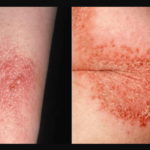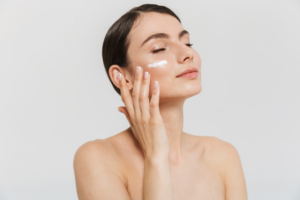The skin is your body’s largest organ. It is a powerful barricade that fights infection, toxins, and other organisms from entering your body. The skin also functions as an immune organ and is an integral part of your immune system. So why is skin important to the immune system?
Skin is important to the immune system because it protects the sensitive organs and tissues inside our body from infection. It serves as a physical barrier that is made up of different layers of cells, which consists of essential elements and enzymes that are triggered when the tissue is being attacked by unwanted and harmful organisms.
Read on to learn more about the role of skin and its importance for your immune system!
Importance of the Immune System
Harmful elements such as bacteria, viruses, parasites, and other infections can sometimes enter our body and attempt to harm the healthy cells. These harmful elements can discharge toxins that can damage these healthy cells. They can also attack specific cells and use them to reproduce. Some of these cells can die or be damaged and turn into harmful cells.
When conditions like these happen, the immune system will then use it’s innate and acquired protection system to get rid of these harmful elements.
The immune system is not found in a particular tissue or organ. It is found in different cells and tissues functioning together to defend almost every single area of our body with the help of white blood cells. The most significant purpose of the immune system is to differentiate what cells and other elements are healthy and should be part of our body and which elements are not.
Why Is Skin Important to the Immune System?
So why is skin important to the immune system? Our skin is the main defensive protection of our body. It takes care of all our inside parts and sustains our immune system. It also assists in controlling our body temperature via sweat glands.
When our body overheats, the sweat gland emits moisture called perspiration. When our skin is unprotected from the sun’s ultraviolet radiations, it produces vitamin D, which is an important vitamin for healthy skin.
The epidermis, which is the outer layer of the skin, has cells that will caution the body about the incoming harmful elements. The glands in our skin can create elements that can kill germs or bacteria from entering our body. But if you have wounds or cuts, infections may enter your body.
Skin care is also important because, as mentioned earlier, our skin helps us fight infections from entering our body. By caring for our skin and making it healthy and hydrated, we are making our skin stronger. When our skin becomes dry, you can expect the skin to crack. These cracks can serve as the passage for germs entering our body, and an individual can become susceptible to infection.
The below video is one of the most visually helpful (and beautifully communicated) look at the skin and its importance to the immune system:
Nutrients That We Need for Our Skin
- Vitamin A – Aids in maintaining healthy and sleek skin and hair.
- Riboflavin (B1) – Aids in preventing skin ailments specifically in the nose, lips, and mouth area.
- Niacin (B3) – Aids in preventing skin ailments specifically those that are exposed to sun.
- Vitamin B6 – Aids in preventing skin ailments and fissures in the mouth area.
- Vitamin C – Aids in the healing of the skin.
- Vitamin D – Aids in keeping the skin healthy.
- Water – The most essential nutrient we have to consume.
Wash Hands to Prevent Skin Infections
The proper way to wash your hands:
• Wet hands with clean water and rub in soap.
• Clean hands together to make a lather and brush all sides.
• Clean hands for about 20 seconds or sing the “Happy Birthday” song twice.
• Wash hands well with clean water.
• Dry your hands using an air dryer or paper towel.
• It is recommended to use a paper towel to turn off the faucet.
If in case there is no soap and water around, and your hands are not noticeably dirty, you can use a sanitizer with 60% alcohol or greater solution. If an alcohol-based hand sanitizer is unavailable, you can use a hand sanitizer that does not have alcohol.
Indication of a Weak Immune System
The main indication of a weak immune system is the vulnerability to infection.
An individual with a weak immune system is liable to get infections more recurrently than most other individuals, and the infection may be hard to treat. These people may also deal with an infection that an individual with a stronger immune system would not acquire.
An individual with a weak immune system can acquire these infections and be more likely to get the following illnesses:
- Pneumonia
- Meningitis
- Bronchitis
- Skin infections
Other symptoms of having a weak immune system:
- Autoimmune ailments
- Infection of the internal organs
- Ailments in blood like anemia
- Loss of appetite, diarrhea, and abdominal cramping
- Delay in development and growth in infants and children
How Will the Immune System Know What Is Harmful?
Our body has good bacteria that help and work as they should. These bacteria live on our skin or in the gut. Since these good bacteria do not attack the body, the immune system will therefore not kill them.
The cells in our body are part of a system known as Human Leukocyte Antigen (HLA). The immune system can identify these marks as your own cell. If a cell does not have a correct mark, then the immune system will attack it.
One example is during a blood transfusion. If you acquire a different type of blood cell after your blood transfusion, the immune system will kill those unrecognizable cells.
Here’s a video explaining the immune system and how it detects and attacks any foreign organism that enters the body:
Signs That Your Immune System Is Working
- You recover quickly after being sick
- Your cuts or wounds heal without getting ill
- Diseases do not recur frequently
- If there are inflammation and discomfort around a cut
Powerful Immune-boosting Foods
To help boost your immune system, you need to consume healthy foods. We gathered these 10 powerful immune system boosters to keep your body healthy, boost your energy, and maintain glowing skin.
Broccoli: Broccoli is packed with vitamins and minerals. It has vitamins A, C, and E and other antioxidants and fiber. It is recommended to cook broccoli as barely as possible or not at all to keep its nutrients intact.
Spinach: Spinach is rich in vitamin C, antioxidants, and beta carotene. Like broccoli, it is advisable to cook spinach as lightly as possible.
Citrus fruits: Citrus fruits are loaded with vitamin C, which can increase the supply of white blood cells that fights infections and can make your skin stronger and more healthy. Examples of citrus fruits are grapefruits, oranges, tangerines, lemons, limes, and clementines.
Garlic: Garlic fights infections and helps in lowering blood pressure as well as slowing down the thickening of the arteries.
Ginger: Ginger helps in reducing inflammation and chronic pain. It is also believed that ginger has cholesterol-lowering abilities.
Yogurt: Yogurt is a great source of vitamin D. When consuming yogurts, choose the one with live and active cultures because it can prompt our immune system and help attack illnesses.
Turmeric: Turmeric has anti-inflammatory properties and is used as a treatment in osteoarthritis and rheumatoid arthritis. It can also help reduce muscle damage.
Almonds: Almonds are packed with Vitamin E. In fact, a half-cup portion of almonds can supply about 100% of the recommended daily amount of vitamin E.
Red Bell Pepper: Red bell peppers have twice as much vitamin C as citrus fruits. This pepper is also a great source of beta carotene that can provide healthy skin and eyes.
Green Tea: Green tea is full of antioxidants and provides the amino acid L-theanine that helps attack germ compounds around T-cells.
Sunflower Seeds: Sunflower seeds provide phosphorous, magnesium, and vitamin B-6. They are also high in Vitamin E that is essential in controlling and keeping the function of the immune system.
Conclusion – Why Is Skin Important to the Immune System?
So why is skin important to the immune system? Skin is important to the immune system because germs can get into our bodies easily. These germs can bring toxins to our cells and cause infection. So it is critical for our skin to block these harmful organisms from entering our bodies.
Since our skin is the physical barrier that helps fight infections, we need to take part in preventing these bacteria and viruses from entering our body, especially if we have a weak immune system.
The easiest preventive measure you can do is to keep clean. Always observe good hygiene simply by washing your hands. By washing your hands often, you can avoid illnesses and spreading bacteria to other people.
Research conducted by the Centers for Disease Control and Prevention (CDC) states that we should wash our hands:
- Before, during, and after cooking food
- Before consuming food
- Before and after attending to a sick individual
- Before and after handling a cut or wound
- After using the toilet
- After every diaper change or after washing up a child who just used the toilet
- After coughing, sneezing, and blowing your nose
- After touching or attending to an animal, animal food, animal wastes, and pet food or treats
- After touching garbage

![Neutral Skin Tone Defined [and Best Colors for Neutral Skin] neutral skin tone](https://skincaregeeks.com/wp-content/uploads/2021/05/neutral-skin-tone-150x150.png)







